Урок-КВН по теме "Why do We Learn the English Language?"
Раздель: Внеклассная работа
![]()
A plan of an open English lesson
Theme: Why do we learn the English lesson?
Aims of the lcompetition:
to teach pupils the importance of learning the English language
to develop pupils’ oral speech
to consolidate pupils’ grammar knowledge.
Type: Competition lesson.
Equipment: cards, tables, presents (sweets)
THE PROCEDURE OF THE LESSON
I. THE ORGANIZATION MOMENT OF THE LESSON.
Teacher: Good afternoon, dear boys and girls! Welcome to our today’s show which is called “Why do we learn the English language?” Today our children, who learn this magic language, show you how they are at English and tell you why they learn the necessary language. Let’s begin! (a report about the English language)
– It is necessary to learn foreign languages. That’s why pupils have got such a subject as a foreign language at school.
Everybody knows his own language but it is useful to know foreign languages too.
– I learn English because I understand that I can use it. For example, if I go to England I’ll be able to speak English there. If I go to the USA, I’ll speak English too. English is used not only in England but also in other parts of the world.
– I learn English because I want to read foreign literature in the original. I know and like such English and American writers as Charles Dickens, Mark Twain, Lewis Carroll and others. I understand that I must learn English. If I know English well, I’ll be able to go to the library and take books by English and American writers in the original.
– I like to travel but it is difficult to visit countries, when you don’t know the language spoken there. If I know the language of the country I am going to, it will be easy to travel there. If I want to ask something, I can do it in English.
– I like to read books and I like to read newspapers too. If I know, for example, English, I’ll be able to read English newspapers and magazines. Knowledge of foreign languages helps young people of different countries to understand each other, to develop friendship among them. For example, if we have a foreign exhibition in Shymkent and I know a foreign language, it is easy for me to visit this exhibition.
– You can see a lot of advertisements, signboards and names in the street. They are in foreign languages. Very often they are in English. If you know English well, you can read and understand them.
– Now we buy many clothes from other countries. If you know English well, you can read something about the size of this or that thing. It is clear to you what it is made of.
– There are a lot of films in foreign languages. If you know them, you can understand films without any help.
– There are international friendship camps in the world. If you can speak foreign languages, it will be easy for you to visit such camps and speak with boys and girls who do not know Russian or Kazakh.
– In short, I understand that I have to learn English properly and I try to do so.
Teacher: Very good! Thank you very much! And now let’s talk about the ABS!
26 letters
26 cards in half a pack
26 weeks in half a year
26 letters dressed in black
In all the words you ever will hear.
A poem
A B C D E F G
George is hiding far from me.
Looking here, looking there
I can’t see him anywhere.
The ABC
I wish I knew my letters well
So I might learn to read and spell.
I’d find them on my pretty card
If they were not so very hard.
II. THE MAIN PART OF THE LESSON.
Teacher: OK! We’ve had warm-up exercises. And now we’re beginning our competition, the main part of our show. Be active, speak English more and more. Then you’ll be given a lot of presents. Are you ready? Listen and guess what it is (who guesses the riddles he’ll be able to take part in the competition)
(Riddles)
What has no legs but can go? (a clock)
What has legs but cannot go? ( a table)
Who can speak but hasn’t any sounds? ( a book)
What can speak and has a lot of sounds but hasn’t a tongue? (a radio or a tape-recorder)
What is the 20th letter of the English alphabet? ( T )
What has teeth but no mouth? ( a hairbrush)
What has a hat but no hair? ( a mushroom)
What is the 4th month of the year? (April)
What has a mouth but no teeth? (a tea-pot)
What has hands but no fingers? (a door)
10 pupils, who guessed the riddles, are divided into 2 teams.
The 1st team is “THE REDS”, the 2nd one is “THE BLUES”. Talking about the colours.)
Teacher: What can you say about these colours?
The Reds – red is a colour of a rose, the symbol of GB.
The Blues – blue is a colour of our flag and so The Reds are our guests.
The Reds – The English
The Blues – The Kazakh
Teacher : Now, we have 2 teams. Listen the 1st task for you.
“THE MAGIC WELL’’

Teacher: While they are doing the task, please, let’s talk about proverbs.
(The other pupils are given 3 proverbs and they should translate them into Russian and Kazakh. For each right answer they’ll be given a score)
Proverbs.
1. A friend in need is a friend indeed
(Друг познаётся в беде.)
2. East or West, home is best.
(В гостях хорошо, дома – лучше.)
3. Better late than never.
(Лучше поздно, чем никогда)
Teacher: I see our participants are ready. OK!
And now, the 2nd task for you is to put the letters in the right order to make a word.
| amen – name | tenkit – kitten |
| lodl – doll | raeb – bear |
| sorhe – horse | restis – sister |
| dirb – bird | taun – aunt |
Teacher: While they are doing the task, please, tell us some patters in English.
Lesser leather never weathered wetter weather better.
Fred fed Ted bread and Ted fed Fred bread.
Can you retell ten texts in twelve seconds?
Pat’s black cat is in Pat’s black hat.
Which witch wished which wicked wish?
Mummies munch much mush.
Teacher: Are you ready? Excellent! And now the third task is “Rhyming Words”
| take – cake | beauty – duty |
| new – few | leather – weather |
| book – cook | ten – hen |
| nine – mine | sand – hand |
| cat – hat | cap – map |
(The pupils say five words & the partners should say rhyming words for them)
Teacher: Very well! You are so good at English & very clever children
III. THE END OF THE LESSON.
Conclusion:
the winners & participants will be given presents (sweets)
Department of Education of Astana city
School - lyceum № 66
what? Where? When?
(an intellectual game held in 10th grade)
Objectives: 1.develop socio-cultural competence and
audio-lingual skills;
2.widen the range of interests ,develop skills to
analyse, compare, logically think, make
decisions;
3.develop abilities to work in groups, training the
readiness to listen to different points of view;
Algorithm of game:
The team with seven players plays against the teachers of English who have prepared for them twelve questions. The team is to answer the teachers’ questions, if the team fails to answer the score will be given to the teachers.
Aids: the table which is divided into twelve sectors, top, tape-recorder with the record of music, screen, computer, gong, black box, handbell.
Procedure.
The leader greets the participants and the guests to music and tells the main rules of game. Then the leader presents the team to music.
Questions:
1.What are the symbols of the main parts of Great Britain?
Daffodil-Wales
Rose-England
Shamrock-Northern Ireland
Thistle-Scotland
2.Match the comparatives:
As cold as ice
As fat as butter
As strong as an ox
As white as sheet
As sweet as honey.
3.Which portrait does not suit the group?
(Brad Pitt, David Backham, David Duhovny,
David Copperfield)
Brad Pitt. All the others are Davids.
4. “To be or not to be
That is the question ”
is a famous line that begins the well-known monologue
from … William Shakespeare’s “Hamlet ”.
5. My heart’s in the Highlands,my heart is not here,
My heart’s in the Highlands a-chasing the deer,
A-chasing the wild deer and following the roe-
My heart’s in the Highlands, wherever I go!
The author of this poem is a Scottish poet who lived a
short life of 37 years. Name the author.
Robert Burns (1759-1796)
6. Black box 1
Attention! The black box!
In this box there is something that in Russian is called by the name of a very popular British sport game.
What is there in the box?
(Golf – гольф)
7. This is the shortest sentence in English which consists of 26 letters of English alphabet. Guess the sentence.
packmyboxwithfivedozen
1613111325215242392086922541526514
liquorjugs
129172115181021719
8. Black box 2
Attention! The black box!
There is one thing in this box which is the great present of French to centenary of American revolution. It is also called “Lady Liberty”. “The Lady” holds a torch on right hand and a tabulation on left hand.
What is there in the box?
(Statue of Liberty)
9.Old English was very different from modern English. But there are some words that you can recognize. Change these words of old English into modern English and translate them into Kyrgyz:
drenkan, slepan, nyne, sunne, god, nigt.drenkan –drink slepan -sleep
nyne -nine sunne-sunny god –good nigt -night
10. John Lennon, Paul McCartney, George Harrison, Ringo Star formed their famous group in 1959.Their first record was “Love me do” in 1962.
Name the group and say in what city they were born?
John Lennon, Paul McCartney, George Harrison, Ringo Star were born in Liverpool. They formed their famous group ”The Beatles” in 1959.Their first record was “Love me do”
in 1962.
11. Crossing fingers in England means ……GOOD LUCK!
12. Give the Kyrgyz and Russian equivalents to a very wise English proverb:
East or West home is best
В гостях хорошо, а дома лучше.
13. The first US President who was among those who wrote the US Constitution in Philadelphia. On April,30,1789 before a large crowd he promised to preserve, protect and defend the Constitution of the United States.Who is he?
The first US President known to all Americans as “The Father of the Nation” was George Washington
14. Many places in London are closely connected with the Crown. There are royal palaces, royal parks, roads and streets where beautiful ceremonies are held. This is the most important building which is the official residence of Queen Elizabeth II.
The most important building is Buckingham Palace which is the official residence of Queen Elizabeth II.
Conclusion
Juries reproduce the winners and award them with a diploma.
Music key.
Открытый урок по теме "Seasons of the Year. Weather"
Цели урока:
1. Совершенствовать умения и навыки практического владения английским языком по данной теме по всем видам речевой деятельности: аудированию, говорению, чтению и письму.
2. Подготовить учащихся к созданию проекта "Welcome to My Town in Winter (Spring, Summer, Autumn)".
3. Воспитывать у учащихся любовь к родному краю.
4. Повысить интерес к изучению английского языка.
Формы работы:
1. Фронтальная
2. Групповая
3. Индивидуальная.
Оборудование урока:
1. Телевизор
2. DVD проигрыватель
3. Диск с мультфильмами "Каникулы в Простоквашино", "Зима в Простоквашино".
4. Тематические картины с изображением времён года.
5. Карточки с заданиями для учащихся.
Оформление доски:
1. На внешней стороне доски написана тема урока, размещены тематические картины с изображением времён года, стихотворение для фонетической зарядки.
2. На внутренней стороне доски записаны лексические и грамматические упражнения.
Использованные учебники:
Кузовлев В. П. и др. "English 6"
Филиппов В. Н. "Английский язык для 5 класса" (интенсивный курс)
План урока:
1. Cообщение темы и целей урока.
2. Речевая зарядка.
3. Фонетическая зарядка.
4. Проверка домашнего задания.
5. Подготовка учащихся к созданию проекта "Welcome to My Town in Winter (Spring, Summer, Autumn)". Работа в микрогруппах: составление сообщений учащимися о временах года, погоде, деятельности людей. Выступления с подготовленными темами.
6. Динамическая пауза. Аудирование учащимися текста учителя.
7. Выполнение грамматических упражнений.
8. Выполнение лексических упражнений.
9. Подведение итогов урока.
Ход урока
I. Teacher: Dear boys and girls! I am very glad to see you at our lesson. Today we'll speak about many interesting things: your favourite seasons, weather, people's activities. During our lesson we'll be preparing for making a project "Welcome to My Town in Winter (Spring, Summer, Autumn)". Let's start. How are you?
P. 1: I am fine, thanks. And you?
Teacher: I am not well today. I think it's because of the weather. What is the weather like today?
P. 2: To my mind the weather is fine today. It is snowing hard and there is no wind.
II. Teacher: Let's watch a small piece of video. (The pupils watch some fragments from the cartoons “Holidays in Prostokvashino” and “Winter in Prostokvashino” and answer the teacher’s questions).
Teacher: What season is it?
P 1: It is winter.
Teacher: What are winter months?
P. 2: Winter months are December, January and February.
Teacher: What is the weather like in winter?
P. 3: I think it is cold, frosty and windy in winter.
Teacher: Do you like winter? Why?
P. 4: I like winter because I have winter holidays and I can ski, skate and play
Teacher: And what season is it?
P. 5: It is summer.
Teacher: What are summer months?
P. 6: Summer months are June, July and August.
Teacher: Is it cool or hot in summer?
P. 7: In our place it is hot in July; and in June and August it is warm.
Teacher: Is summer your favourite season? Why?
P. 8: Of course summer is my favourite season, because I can swim, go to a picnic and fish.
Teacher: And now have a look at these pictures, please. (The pupils look at the piсtures with different seasons. ) Get ready to answer my questions.
Teacher: Is it autumn or spring?
P. 1: It is autumn.
Teacher: Is it rainy or snowy in autumn?
P. 2: In September it is rainy but in October we can see the first snow.
Teacher: What colour are the leaves on the trees?
P. 3: The leaves are of different colours: yellow, red, brown and green.
Teacher: Where do all pupils go in autumn?
P. 4: After long summer holidays all pupils go to school.
Teacher: Is spring a fine season? Why do you think so?
P. 5: No doubt, spring is a fine season, it is so beautiful to see new leaves, grass and flowers.
Teacher: Is it wet or dry in spring?
P. 6: The snow is melting and so it is wet.
Teacher: What do the pupils do outside?
P. 7: They can play sports or cycle outside.
III. Teacher: Let's improve our pronounciation:
The snow is thick,
The snow is white.
It must have fallen all the night.
A summer day
Has rain or sun,
But other way
I find it fun.
IV. Teacher: Please, open your books. Let’s check up your homework. Read and translate the text, please. (ex 1, p 87, В. П. Кузовлев “English 6”)
V. Teacher: And now we are to prepare for making a project "Welcome to My Town in Winter(Spring,Summer,Autumn). But firstly, let’s play.
1. Teacher: Please, try to guess what season it is. (Pupils read the words on the blackboard and call the seasons. )
Words :1) warm clothing, below zero, storm, ice ;
2) wet, snowdrops, grass, birds ;
3) lie in the sun, sea, holidays, hot.
P 1: It' winter. P 2: It's spring. P 3: It's summer.
2. Teacher: Now we are to devide into three groups.
The first group will work using a plan. (Приложение 1)
The pupils of the second group will speak using questions. (Приложение 2)
And the pupils of the third one will complete the sentences given in the cards. (Приложение 3).
All the pupils should include into their stories two sentences with First Conditional,
for example: If the weather is sunny, we’ll go to the park.
Then two pupils from each group will tell their stories.
Pupil 1: My favourite season is winter. Winter months are December, January and February. There is much snow in winter, the weather is windy, frosty and cold in my town.
The temperature is below zero. The days are short and the nights are long. Children like to make snowmen and to play snowballs. Besides they enjoy skiing and skating. If the weather is fine they will go for a walk. If it is very cold they will stay at home.
VI. Teacher : I see you are tired, let's have a rest. Listen and do. (The pupils listen to the teacher's text and do exercises. ) (Приложение 4)
VII. Teacher: Let's do some grammar exercises.
1. Translate into English:
Cентябрь. Сыро. Идёт дождь. Ветрено. Буря. Ужасно.
P 1: It is September. P 2: It is wet. P 3: It is raining. P 4: It is windy. P 5: It is storm.
P 6: It is dreadful.
2. Put the verbs into the right form. (The pupils write the sentences in their exercise-books).
a) If the weather (be) fine we (go) to a picnic.
b) If it (be) very hot they (go) to the beach.
с) If I (have) time we (play) tennis.
d) If I (finish) my work I (go) for a walk.
e) We (watch) TV if my friends (come) to me.
f) They (stay) at home if there (be) foggy.
VIII. 1. Teacher : Now let's have a competition. Look at the blackboard. You can see two columns of words. The first column consists of nouns, the second one consists of adjectives. Make up as many word combinations as you can to use them in your projects.
Adjectives
Nouns
Cool rain hot sky stormy weather dreadful autumn cloudy day marvelous spring windy
Summer wet rainbow lovely morning frosty winter snowy storm
P. 1: а cloudy sky; P. 2: a frosty day; P. 3: a wet weather; P. 4: a snowy winter …
2. Teacher : Look at the blackboard, please. (The pupils see the names of animals: a monkey, a frog, a giraffe, a cock).
Tell me what season they like and why.
For example: A polar bear likes winter because it is frosty.
P. 1: A monkey likes summer because it is warm.
P. 2: A frog likes autumn because it is rainy.
P. 3: A giraffe likes spring because it can eat green leaves.
P. 4: A cock likes summer because the sun shines brightly.
Teacher: But I think the cock likes winter because its New Year is coming. Let's greet it and sing a song "A Fir Was Born in Deep Wood" (The pupils sing a song. ) (Приложение 5)
IX. Teacher: Write down your homework, please. You should prepare a project "Welcome to My Town in Winter (Spring, Summer, Autumn).
X. Teacher: Did you enjoy the lesson?
P. : I think it was very interesting.
Teacher: We have spoken about many interesting things today. I hope you know much about seasons of the year. Thank you for your hard work. Your marks are …
Приложение 1
Plan
1. Your favourite season.
2. Months.
3. Weather. Temperature.
4. Days.
5. People's activity.
Приложение 2
Questions
1. What is your favourite season?
2. What are (winter, spring, summer, autumn) months?
3. Is it rainy or snowy in …
4. Is it cold or hot in … ?
5. Are the days long or short?
6. What do you usually do in … ?
7. What games do you usually like to play in?
Приложение 3 (Учащиеся аудируют текст и повторяют движения учителя).
You are walking along the street to school. You have a heavy bag in your left hand. The day is sunny, but frosty. Your nose and cheeks are cold. Suddenly you see a boy playing snowballs.
You put down your bag, pick up some snow, make up some snowballs and throw them at the boy – one, two, three. It's funny! But what about school?
You take your bag and quickly run to school. You open the door, come in, wave your friends "Hello!"
Oh, you are late. Join us, we are improving our phonetics. We'll recite the rhyme "Whether the weather… ", doing short sits when pronouncing the sound [w].
Приложение 4
Сomplete the sentences
1. My favourite season is ….
2. (Winter, spring, summer, autumn) months are ….
3. It is (rainy, snowy, foggy) in ….
4. It is (cold, cool, warm) in ….
5. The weather is (dreadful, fine) ….
6. The days are (long, short).
7. I usually … in ….
8. I play … in ….
Приложение 5
Fir – Tree (Учащиеся поют на мотив песни “В лесу родилась ёлочка”)
1. A fir was born in deep wood
And in the wood grew tall.
And there in seasons she stood
The greenest tree of all.
2. The snowstorms whispered lullabies,
And wrapped up all the trees.
She sang: "Now close your lovely eyes,
Make sure you don't freeze. "
3. The fir to our party's come,
And all this winter night
She brings such joy to everyone –
Oh, what a lovely sight.
Health is the best wealth
Цели урока:
Развивающий аспект:
Развивать коммуникативные навыки учащихся;
Учить детей создавать презентации творческих проектов;
Проводить интерактивный опрос;
Обрабатывать полученные данные;
Воспитательный аспект:
Воспитывать здоровые привычки;
Показать учащимся важность здорового образа жизни;
Учебный аспект:
Активизировать изученную лексику по теме;
Развивать у учащихся умение творчески использовать изученный материал в типичных ситуациях;
Задачи:
1) Контроль развития речевых умений;
2) преодоление коммуникативного и эмоционального барьера при говорении на английском языке;
3) развить умения сравнивать, обобщать, логично мыслить;
4)овладеть моделями высказывания на ИЯ.
Методы применяемые на уроке: интерактивный, словесный, наглядный , практический.
Схема урока
1. Motivation of the lesson;
2. Phonetic exercises;
3. Practice of listening, and speaking;
4. To сhесk home task;
5. The discussion of the problem;
6.Home task: to make your report on topic Sport in our school”
Оборудование: интерактивная доска, ноутбук, магнитофон, учебник, рабочая тетрадь.
Ход урока
«Health is the best wealth»
1.Организационный момент
T: - Good morning, everybody! I`m glad to see you here. How are you?
P1:OK.Thanks. And how are you?
T: - I`m fine. Thank you.
T:-Today, we are going to speak on the topic «Health is the best wealth». We`ll discuss the problem connected with the fast food, the reasons of excess weight, a balanced diet and , of course, the role of sport in order to be fit. I think that you`ll know much interesting and useful information about healthy lifestyle. I`m sure and I think you`ll agree with the words that our health is in our own hands.
T: But first I`d like you to revise some words and phrases for this topic:
(to diet-соблюдать диету ,anarexia -анарексия, to have excess weight-иметь избыточный вес, to gain weight- прибавлять в весе, to lose weight-терять в весе to burn calories- cжигать калории, а balanced diet- сбалансированная диета, to contain energy-содержать энергию, convenience food-полуфабрикаты and etc.) (T-P1, P2, P3…)
2. Фонетические упражнения. (Отработка найденных пословиц и поговорок по изучаемой теме)
And now, I`d like you to name some proverbs about the health, which you should prepare at home. Try to explain their meaning.
The first wealth is health
Health is the wealth
Live not to eat, but eat to live
To lengthen the life , lessen your meals
Diet care more than lancet
An apple a day keeps the doctor away
Gluttony kills more than sword
Temperance [s the best physic
3. And now you should listen to the statements and give your opinion. Agree or disagree.
To keep balanced diet is harmful.
Eating convenience food is a bad habit.
To drink alcohol is a healthy habit
Everybody should do exercises three times a week
Excess weight can lead to health problem
Not every diet is good for you
4. For the previous home task you had some questions for interviewing your parents/ friends. Now you should give us your results. So, I revise the questions:
1).Is it easy or difficult for you to wake up in the morning?
2) What is your attitude to breakfast?
3) What is your lifestyle?
4) Do you do morning exercises?
5) What`s your favourite food/drink?
And now our experts are ready to give the results:
Skipping breakfast is harmful
Many people do morning exercises
Most of people don`t keep balanced diet
So, according to the survey most of people do not take care about their health.
5. You see that it is very difficult to follow healthy lifestyle. And what can help you to be healthy? - Of course, sport and useful food. What can you do at school to be healthy? Let`s discuss your ideas.
6. Now, the results for your work during our lesson.
7. Homework:”Sport in our school”.
Weather
Цели:
1. Активизировать изученный лексический материал по теме «Погода». Совершенствование коммуникативных навыков и умений.
2.Развитие воображения, мышления, монологической и диалогической речи учащихся, навыков аудирования. развитие языковых способностей учащихся, готовности к коммуникации, развивать мышление, память, стимулировать самостоятельность учащихся.
3. Воспитательные:воспитание культуры и потребности в практическом использовании языка в различных сферах жизни;формирование у учащихся основных мировоззренческих идей;воспитание и развитие толерантности и самооценки и содействовать расширению кругозора путем привлечения дополнительного материала.
Форма работы: фронтальная работа,парная работа, групповая работа,, самостоятельная работа, работа интернет ресурсами
Задачи урока: закрепить и проверить знания учащихся по теме,совершенствование речевых умений по теме, поддерживать интерес учащихся к изучению английского языка ;
Метод - личностно-ориентированный, ролевая, вопросы -ответы
Тип урока – урок обобщения и систематизации знаний,
Оснащение урока – Аудиозапись,кроссворд, карточки со словами, наглядность по теме.
компьютер,итернет ресурсы, интерактивная доска, магнитофон с записями, слайдовая презентация по теме «Погода «, раздаточный материал с лексико-грамматическими упражнениями;
Ход урока
I. Организационный момент. Приветствие (1-2 minutes)
Teacher: Good morning,children!
Pupils: Good morning, Good morning
Good morning to you
Good morning, dear teacher
I’m glad to see you!
Teacher: Sit down, please.
Well, who is on duty today? How are you?
What day is it today?
Who’s absent?
Are you ready for your lesson?
II.Warm up
Teacher :Listen ,read, then sing. Jazz Chant. (на интерактивн. доске)
How is the weather do know?
Don’t ask me! I don’t know!
Is it rainy? Is it snowy?
I can’t see. C’mon, let’s go
III.Контроль домашнего задания. Развитие монологической речи. (10minutes)
Teacher:Let’s check your homework. What did I give you for homework?
Znannur: Our home task is ex 8 tell about favourite season.
P1: My favorite season is… because…. . I like …..
P2 : I lke summer because I was born in summer….
IV. Объявление цели и задачи урока:
(тема на доске)
Teacher: I want us to read the poem.
Учащиеся читают стихотворение:
When the weather is wet,
We must not threat.
When the weather is cold,
We must not scold.
But be joyful together
Whatever the weather!
Teacher: What are we going to talk about at the lesson?
Pupils: We are going to speak about the weather. (Учащиеся отвечают на вопрос.)
Teacher: So,today we are going to speak about weather.The theme of our lesson is «What nice weather!» Every day we begin our lesson with the question: What is the weather like today? Because it’s very important to know what to wear. If it is a nice day, we smile and are in a good mood. If it is a bad weather, it can spoil our mood. By the way, what is the weather like today?
Организация тренировки используемой на уроке лексики:
Write the correct word under each symbol.
Word – building: noun + y = adjective
fog – foggy
wind – windy
rain – rainy
snow – snowy
sun – sunny
storm – stormy
cloud – cloudy
Использовать :сайт http://englishon-line.ru/leksika-spravochnik Ролик английский лексикой «Погода»
Task1. Ex2.Complete the sentences
-What ;s the weather like today?
-It’s ________________________.
-What was it yesterday?
- It was _____________.
а) Work in pairs. Find out about the weather round the world yesterday?
Ask and answer questions using the information.
Student A. Use the information below.
Student B. Look at the information on page 189.
Which is city was the hottest?
Which city was the oldest?
Which month do you think?
Ex4 Talk to partner
What is the difference between «too» and «very»?
Are these summer temperature hot, very hot or too hot for you? 25 C, 35C, 45C
What about the winter temperatures? 10 C, 0 C, -10 C
Are they cold, very cold or too cold for you?
Ex 5 . Think about the weather in your place and put a trick (*) next to the sentences you agree with. Compare your answers in groups
It’s too cold in the winter.
The weather is very changeable.
Theme of the lesson: An unusual gift.
Objectives: By the end of the lesson, Ps will be able to:
● talk about presents, gifts
● guess the meaning of unknown words from context
● use the following words in speech: rich woman, a pet shop, it costs, send, calls,
buy, delicious.
Materials:
●Students book pp 50-52
● Handout 1
Procedure
| Stages of the lesson | Contents |
| 1.Organization moment Time: 3 min | -Good afternoon everybody! - How are you? -How do you feel yourself today? -Are you OK? -Who is on duty today? -What is the weather like today? -Do you like it?
|
| 2.Checking up the home task Time: 7 min | -What was your home task for today? -Are you ready for the lesson?
|
|
3.New theme Time: 10 min Method: brainstorming | Actualization of knowledge: -When did you was born? -Do you like to do something on your free time? -Do you like take a present from somebody? -What kind of present do you like take? Now, pupils today we’re gonna talk about presents. Presentation of the new theme: T: Read and discuss the text. A rich women is thinking about her mother. It’s her mother’s birthday. She wants to send her mother a nice birthday present. The woman goes to a pet shop. She sees a beautiful bird. The bird can sing and it can speak seven languages. It costs fifty thousand dollars. The women buys the bird and sends it to her mother. The next day the woman calls her mother on the telephone. “Mama”, asks the woman, “do you like the bird?” “ I’m eating it right now”, her mother says. “It’s delicious”.
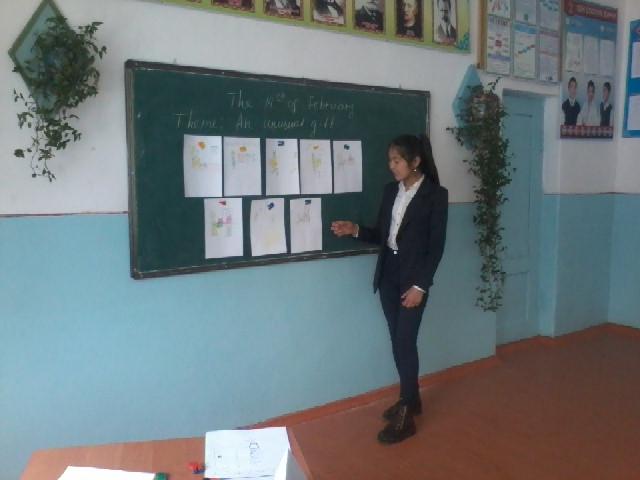
|
| 4.Fixing Time: 15 min Method: |
Task 3. Fill in the gaps. A rich woman is thinking about her _____. It’s her mother’s _______. She sees a beautiful _______. The bird can sing and can _____ seven languages. The ____ day the woman calls her mother on the _____.
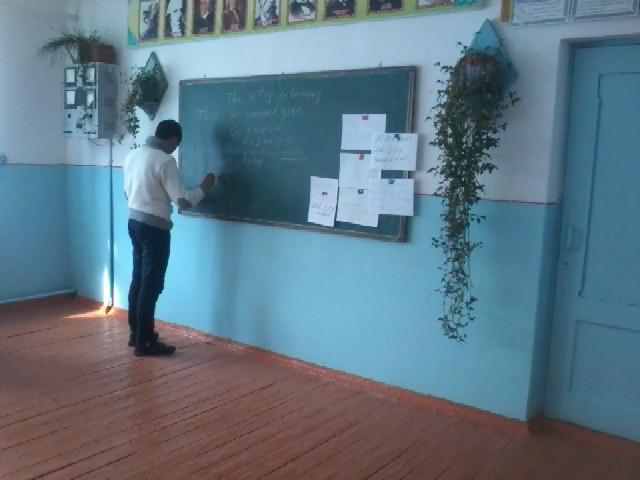
Task 6. Write the story in our own words. Use the picture and key words to help you. rich, woman, think, mother, want, send, birthday. go, pet shop, see, beautiful bird. bird, sing, speak, languages cost, fifty thousand dollars. buy, bird next day, call, telephone, ask, like, bird eat now, delicious
|
| 5.Reflection: Time: 5 min Mark: Feedback | What was new and interesting for you from this lesson?
What was difficult or on the contrary easy for you in this lesson? Did you like the way we have worked today? Let’s talk about theme. Whom is the rich woman thinking about? What does she want to send her mother? Where does the women go? What does she see?
|
| 6.Mark: Time: 4 min Method: Group work Evaluation each other
|
Pupils ask to each other about the theme and give suitable marks to themselves. Today you take part very active. I’ll give good marks. |
| 7.Home work: Time: 1 min
8.Conclusion | -Your home task for the next time will be ex.2 on p.50 Retell the text. I think that you enjoyed this lesson. See you! Good bye! |

Theme: An unusual gift
Open lesson.
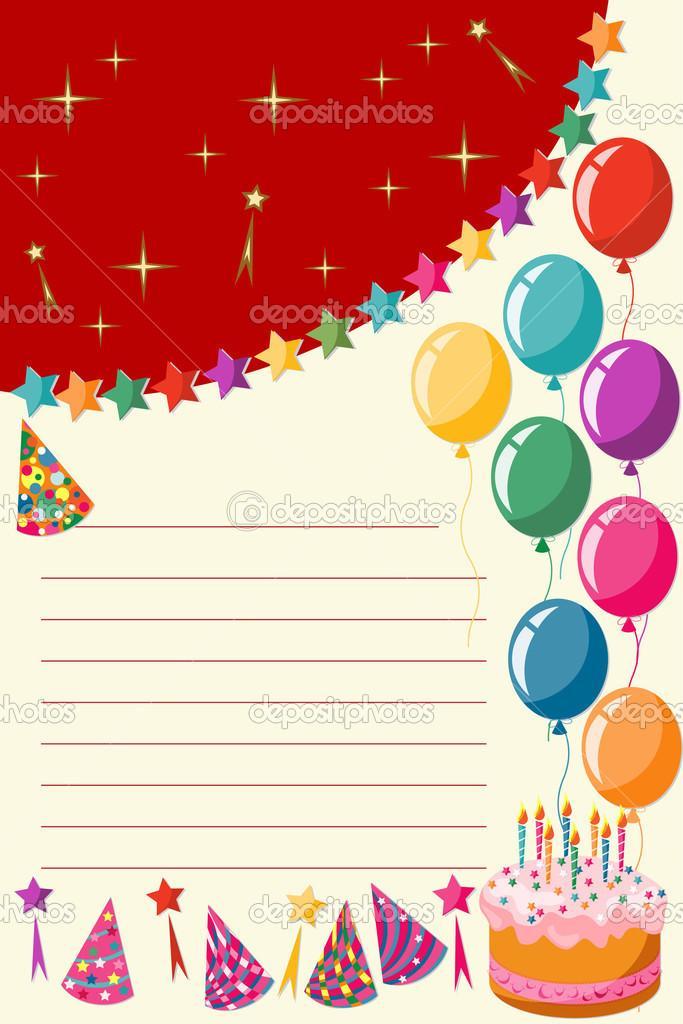
Form: 9
Teacher: Kalmanbetova Ghazgul.

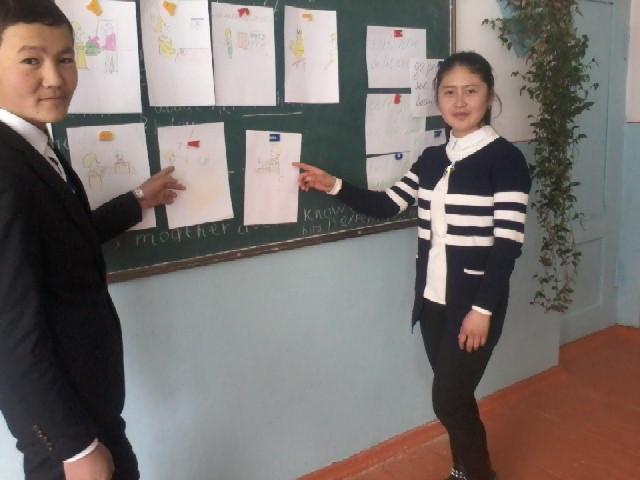
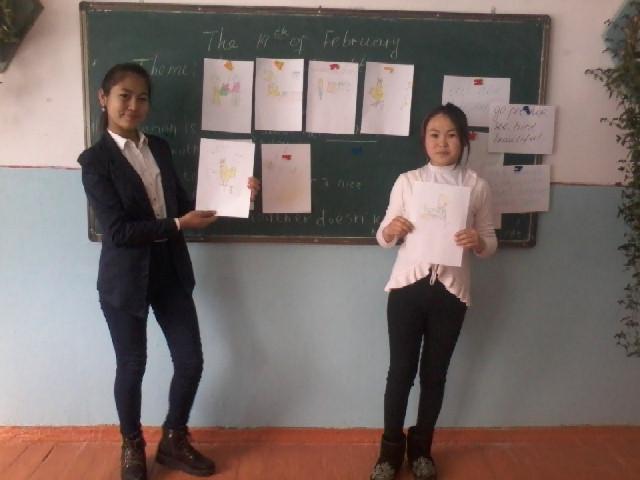
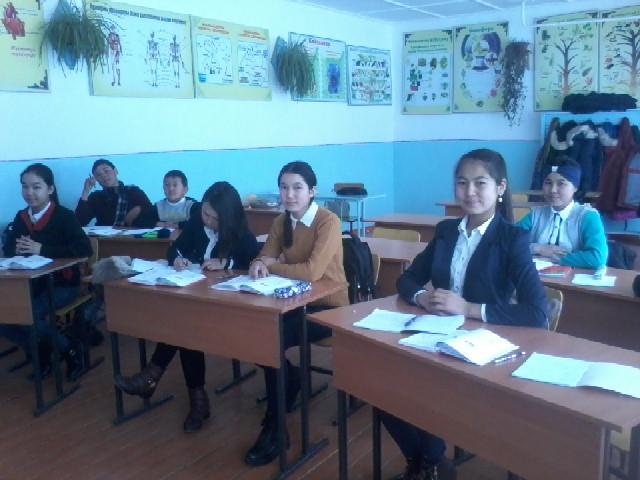




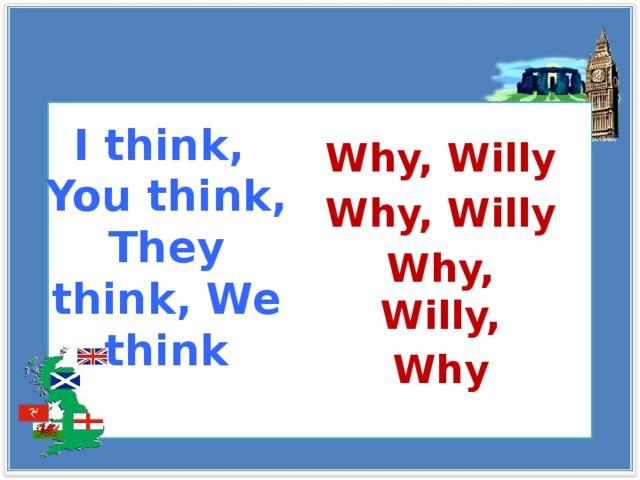
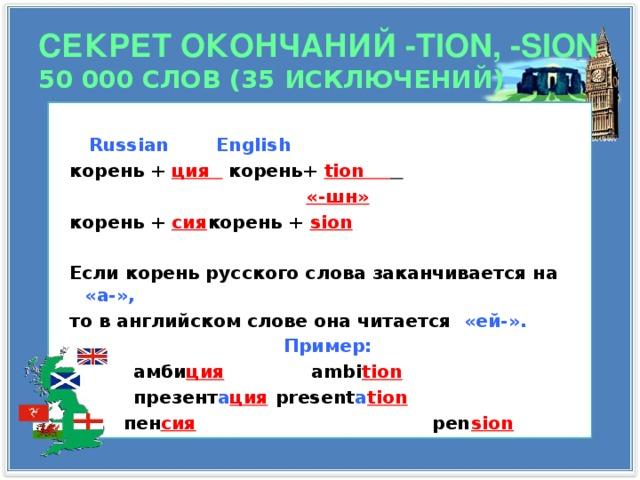
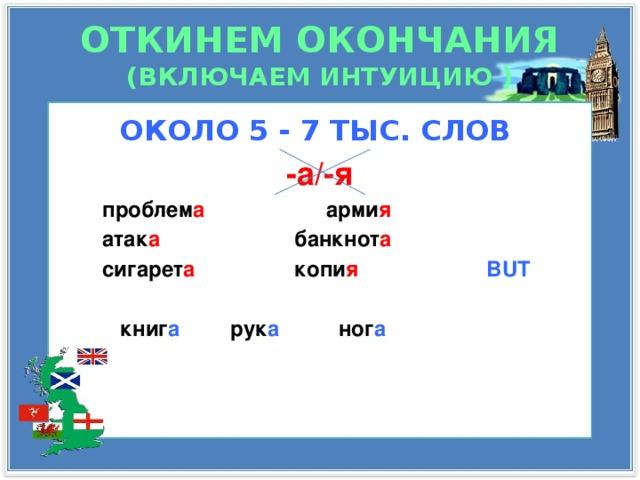
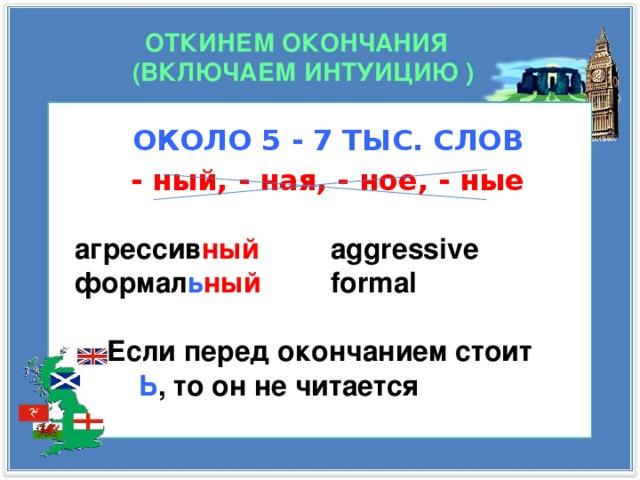
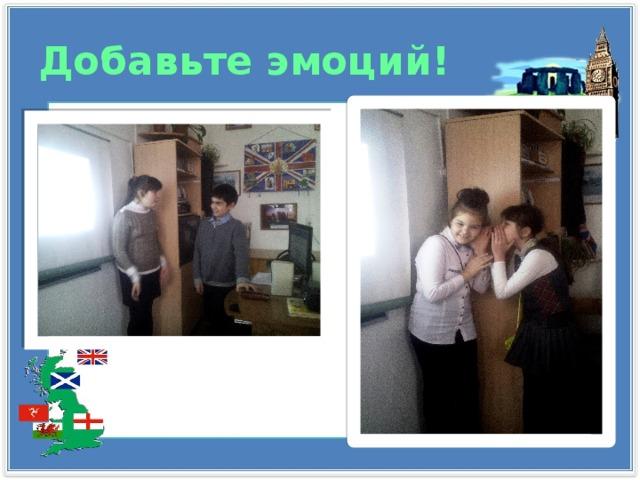
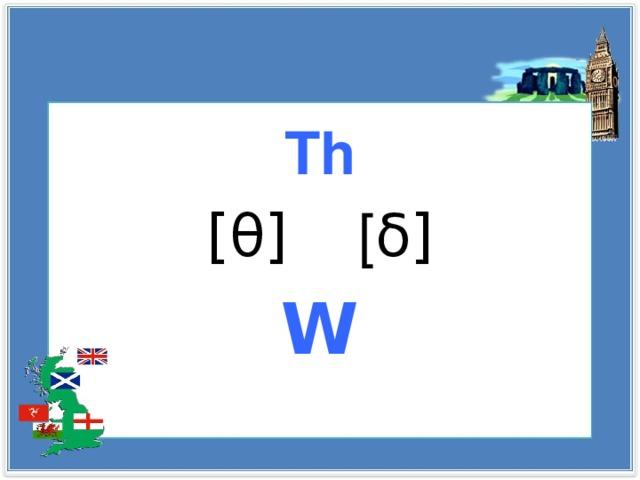

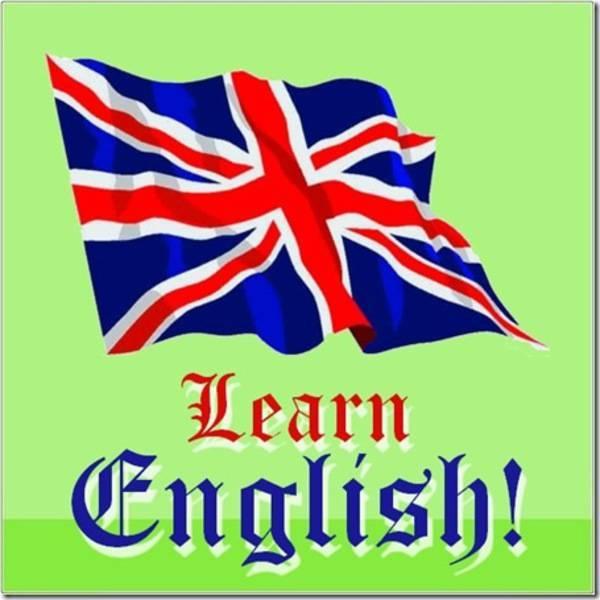



Мастер класс.
How we’ll teach English on easy way?
The aims of the master class: 1) Students get more information about the theme.
2) Students will be able talk about the meaning of the international words.
3) Students can ask questions each other.
Teacher: Good morning guys. - How are you?
- How do you feel yourself?
Let’s begin our master class. At first “How we will teach English on easy way”.
“Why do we learn the English language?”
Teacher: Today our children, who learn this magic language, show you how they are at English and tell you why they learn the necessary language. Let’s begin! (a report about the English language)
Pupil 1:– It is necessary to learn foreign languages. That’s why pupils have got such a subject as a foreign language at school.
Everybody knows his own language but it is useful to know foreign languages too.
Pupil 2: – I learn English because I understand that I can use it. For example, if I go to England I’ll be able to speak English there. If I go to the USA, I’ll speak English too. English is used not only in England but also in other parts of the world.
Pupil 3: – I learn English because I want to read foreign literature in the original. I know and like such English and American writers as Charles Dickens, Mark Twain, Lewis Carroll and others. I understand that I must learn English. If I know English well, I’ll be able to go to the library and take books by English and American writers in the original.
Pupil 4: – I like to travel but it is difficult to visit countries, when you don’t know the language spoken there. If I know the language of the country I am going to, it will be easy to travel there. If I want to ask something, I can do it in English.
Pupil 5: – I like to read books and I like to read newspapers too. If I know, for example, English, I’ll be able to read English newspapers and magazines. Knowledge of foreign languages helps young people of different countries to understand each other, to develop friendship among them. For example, if we have a foreign exhibition in France and I know a foreign language, it is easy for me to visit this exhibition.
Pupil 6: – You can see a lot of advertisements, signboards and names in the street. They are in foreign languages. Very often they are in English. If you know English well, you can read and understand them.
Teacher: – Now we buy many clothes from other countries. If you know English well, you can read something about the size of this or that thing. It is clear to you what it is made of.
– There are a lot of films in foreign languages. If you know them, you can understand films without any help.
– There are international friendship camps in the world. If you can speak foreign languages, it will be easy for you to visit such camps and speak with boys and girls who do not know.
– In short, I understand that I have to learn English properly and I try to do so.
Teacher: In English have many international words. There are 5-7 thousand words aggressive, passive, negative, positive, active.
About 5-6 thousand words are: army, attack, copy, cigarette, business, University, college, park, museum, class, form, energy, hotel,
Secret some of words where ending – tion, sion
Constitution, position, ambition, action, tradition, presentation, pension, emotion.
Some tongue-twisters useful for our pronunciation and for our lexics. We can say them with emotions and act .

Сценарий конкурс Hellowen
Задания
1. Плакаты с надписями “The Halloween Party” 8 класс, «Канун дня всех святых» 8, “Trick or treat” 9, “Halloween “9, “Входи, если смелый”, “DANGER” 10, “Go away”, “Тебя сюда не звали”, “Happy Halloween to all and to all a have a good fright”11.
2. Иллюстрации приведений, черного кота, летучих мышей, полной луны, тыквы, чертика, свечи.
3. Фонарь из тыквы, тыква для гадалки, метла, яблоки, таз с водой, два конверта, томатный сок – 2л, буквы с надписью Halloween, стаканы одноразовые 30 шт, яйца варенные 6 шт, 4 туал бумаги,
4. Косынки для конкурса «Красивым быть не запретишь», воздушные шары, записки с предсказаниями.
5. Работает Halloween museum, где представлены “The remains of an old woman”, “Справочник групп крови”, “Картотека Нечистой Силы”, “Книга старинных заклинаний”, экспонаты “Родная гниль”, “Пыль веков”, “Прах предков”, “Любимая паутина”, “Спёртый воздух” и т. д. На конкурс поделок учащиеся готовят сувениры и даже бутерброды с экзотическими названиями, связанными с праздником.
Перед входом в зал построен дом с привидениями, на котором две надписи: “Haunted House” и “Комната Отдыха”. Через “дом” проходят желающие учащиеся, где их ждут сюрпризы. Им предстоит в кромешной тьме дотронуться до “мозгов, червей, крови, мёртвой руки”, почувствовать чужое дыханье и ощутить чьё-то прикосновение.
Сцена украшена разрисованной ширмой, которая является декорацией для сценки. На ней нарисован огромный котёл, в котором варится зелье, вокруг головы чудовищ, чёрных котов, тыкв и ведьм. Над сценой к потолку на ниточках прикреплены нарисованные фигурки летучих мышей, луны, ведьм на мётлах. В центре стоит кресло – качалка.
Рядом со сценой расположена Говорящая Голова, которая представляет собой очень большую разноцветную коробку, украшенную надписями “почтовый сбор уплачен”, “крючья не применять”, “где верх”, “не открывать”. В неё может спрятаться ученик с микрофоном, который на вечере будет предсказывать будущее. Сверху на коробке прикреплена лампочка, на которой стоит тыква с вырезанным лицом, и которая загорается, как только она начнёт “вещать”.
Пока учащиеся проходят Haunted House и рассматривают поделки в зале, звучит соответствующая музыка, которая заканчивается с началом представления.
За участие в представлении и конкурсах, за приготовленные костюмы учащиеся награждаются призами. В конце вечера все присутствующие получают сувениры, приготовленные самими ребятами.
Действующие лица: ведущий, две ведьмы-ведущие, четыре ведьмы участницы, гадалка, зрители в маскарадных костюмах
Ход мероприятия
Ведущий: у каждой страны свои традиции. Сколько стран – столько и обычаев. Сегодня мы приглашаем вас на один из самых важных праздников, который отмечают в англоязычных странах – «Канун дня всех святых», или «Хэллоуин» - произошло от словосочетания “holy evening” – «святой вечер». это один из самых любимых и веселых праздников в США и Великобритании. Его отмечают в ночь на 31 октября. Он возник много столетий назад в Ирландии и Шотландии. Древние друиды, преклоняясь перед богами и силами природы, отмечали окончание осени и начало зимы, в последнюю ночь октября, когда солнце отступало перед силами темноты. Суеверные люди Ирландии считали, что в эту ночь умершие люди могут воскреснуть и прийти к людям в обличии ведьм, колдунов, домовых, приведений, духов, черных котов и другой нечисти. Только в эту ночь нечисть обладает силой и возможностью использовать её повсюду. Люди считали, что ведьмы покидали в эту ночь свои постели, меняли облик. С помощью волшебства и через дымоходы они взлетали на небо, а сопровождали их при этом черные коты. Вся преисподняя устраивала в эту ночь грандиозный шабаш.
Сегодня мы предлагаем вам поучаствовать в этом шабаше. Просим принимать активное участие в конкурсах. Еще нам необходимо выбрать жюри (3-4 человека). Итак, мы начинаем!
Ведущий 2: Good evening, dear guests. Welcome to our party! Today we are having a special holiday for the dead – does that seem strange? Perhaps not. There are so many holidays for the living, why not set aside a day to remember those who have died? In Europe the night of the ghosts and witches was combined with the Christian holiday. As that night fell on October 31, people called it Halloween. This means “hallowed evening” or “holy eve”.
Действие №1. На сцене появляется Главная Ведьма на метле, усаживается на трон.
Главная Ведьма: ну наконец-то я добралась до Лысой Горы… Скоро сюда на ночное сборище вся нечистая сила пожалует!
Звучит музыка, на сцену выходит Обыкновенная Ведьма.
Обыкновенная Ведьма:
It’s Halloween
By Jack Prelutsky
It’s Halloween! It’s Halloween!
The moon is full and bright.
And we shall see what can’t be seen
On any other night!
Привет, Ваше старое злодейство!
Главная Ведьма: Ну какая же я старая! Я только жить начинаю, а ты чего это не по форме одета? И нога не костяная? И метлы нет?
Обыкновенная Ведьма (в сторону): Вот карга старая! Ведьме: Я современная ведьма! Мне ваши старые обычаи надоели! А колдовать я и так умею!
Главная Ведьма: ну ладно… Устрою тебе экзамен! Иди, готовься, изучай колдовскую книгу!
Обыкновенная Ведьма: чем меня проверять, лучше бы устроила экзамен для тех ведьм, которые на нашей горе на днях поселились!
Главная Ведьма: Как? Новые ведьмы? А я ничего не знаю? Ко мне их всех!
Действие № 2.
На сцене появляются четыре ведьмы-участницы, со своими кавалерами: вампир, леший, оборотень, привидение
В один голос: Привет, Ваше старое злодейство!
Главная ведьма: Да не старая я! Мне только 2000 лет! А вы, молодые да неопытные, почему ко мне на поклон не пришли, свою магию не показали? Сейчас я устрою для вас экзамен! Марш готовиться!
Участники уходят со сцены.
Действие №3.
Обыкновенная Ведьма (выбегая на сцену): Ура! Выучила!
Ты плюй через плечо,
Чтобы стало горячо…
На болоте жаба,
В огороде баба…
Топ-топ, хлоп-хлоп,
Тьфу, тьфу!
Главная ведьма расстроено: Ох-ох, что-то шуму маловато. (Гневно): Где крики? Где песни?
Обыкновенная Ведьма (успокаивая): Все в порядке, Ваше Злодейство, все будет! Мы сейчас наших молодых ведьм испытывать начнем! Шабаш продолжается!
Главная ведьма: Да, теперь порезвимся! А ну марш, шевели мелюзгу!
Действие №4.
Конкурс №1 для молодых ведьм. Молодые ведьмы по очереди представляют себя. Жюри оценивают их выход, макияж, наряд и метлу. (Ведущий просит оценить ведьм по пятибалльной системе)
Действие №5.
Главная ведьма скучает. Обыкновенная Ведьма (вбегая):
Бабка-ёжка костяная ножка,
С печки упала, ножку сломала,
А потом и говорит:
У меня нога болит!
Вышла на улицу, раздавила курицу!
Вышла на лужайку,
Испугала зайку!
Главная ведьма: Спасибо за комплимент, угодила! А теперь, давай посмотрим, как наша мелюзга колдовские танцы исполняет!
Конкурс 2: Ведьмы-участницы по очереди представляют свой танец (домашнее задание).
Обыкновенная ведьма: К нам на шабаш прилетело много всякой нечисти, давай и им устроим проверку!
Конкурс для зрителей: в тазу с водой плавают шесть яблок. Необходимы две команды по три человека в каждой. Не касаясь яблок руками, нужно достать их зубами. Кто быстрее справится с заданием, тот и побеждает. Приз – яблоки.
Главная Ведьма: Молодцы! А теперь давайте продолжим испытывать наших ведьм!
Действие №6 Конкурс «Выпей кровушки»
Для конкурса понадобятся стаканы, томатный сок, карточки с буквами. Карточки с буквами делают размером 3*3см., запаивают при помощи утюга в полиэтилен. Томатный сок разливают в стаканы (количество стаканов равно количеству гостей) и ставят на стол в одну общую кучу. В каждый стакан кидают карточку с буквой. Команды выстраиваются в колонны вдоль линии, находящейся на расстоянии 3 метра от стола с соком. По сигналу ведущего первые участники бегут к столу, выпивают сок, достают букву и с этой буквой бегут к команде, затем бежит второй участник. Когда все участники принесут буквы, команда начинает составлять себе название. Побеждает команда, составившая самое длинное название.
Слова из букв: Halloween
Главная Ведьма: Конкурс для зрителей: «Дайте автограф»
Для конкурса необходимо два заклеенных конверта, в которые вложен листок с заданием, две ручки. Необходим парень и девушка. За время одного музыкального трека им необходимо собрать в зале наибольшее количество подписей на конверте. Парень берет автографы у девушек, а девушка у парней. Затем проводится подсчет голосов. Выиграл и получит приз тот, кто насобирал подписей больше. Ведущий предлагает конкурсантам открыть конверты и огласить призы.
У юноши: «Мы, нижеподписавшиеся девушки, обязуемся в течение целой недели носить этого молодого, интересного симпотяшку на руках, провожать домой и в школу, причем все сразу!»
У девушки: «Мы, нижеподписавшиеся парни, обязуемся этой милой, красивой, замечательной девушке скупить весь шоколад в магазине!»
Действие №7
Главная ведьма: Русская рулетка
Ведущий вызывает 4 самых смелых 2 девушки 2 парня, делят их по парам
Каждый тянет из коробки яйцо.
Ведущий:
— два яйца варёные, одно – сырое. Какое именно, мы узнаем, когда эти отважные люди разобьют яйца о собственные лбы...
Участники по очереди бьют яйца о лоб.
Ведущий — последнему:
— Вы можете отказаться, но тогда вы – «не смельчак».
Ведущий просит зал подбодрить игрока.
Как правило, участник бьёт яйцо, и оно оказывается… тоже варёным!
Главная ведьма: А теперь я загадаю вам загадки:
Железные зубы, костяная нога,
Все люди знают, это…(баба яга)
С ужасной родословной
Я связан нитью кровной
Мой прадед – людоед,
Вампир мне дед, упырь – сосед,
И кровожадный ящер
Мне доже дальний пращур
Я маленький кошмарик,
Зовут меня….(комарик)
Главная ведьма: так как вы, ведьмы, учитесь в магической школе, задам ка я вам вопросики!
Now I suggest that you should guess my riddles.
1.She always flies on her magic broom,
She always flies around the moon
With a black hat on her head
And what do you think, who is that?
(a witch)
2. Кафе «Голубой огонек» (туалет)
3.It means bad luck, don’t look at it
If it crosses your path
And what do you think we call it?
(a black cat)
4.Имя для анекдотов школьного масштаба (Вовочка)
5.Звенящая зараза (будильник)
6. I am a big and round
Once upon a time I grew on the ground
Now I have a mouth, 2 eyes and a nose
Who am I do you suppose?
pumpkin
7. То, что моментально теряется по первому же требованию учителя (дневник)
8. Вроде молчит мобилка, а бежит училка (звонок)
9. Лицо, чуть менее главное после директора, которое чуть-что «родителей в школу» (завуч)
10. In masks and gouns we haunt the street
And knock on doors for trick or treat
Tonight we are the king and queen
For all tonight is ………..
(Halloween)
11.Главный раздражитель учителей на уроке, но не твоя прическа (сотка)
12.Главное лицо после директора, которое чуть-что и сразу «тряпкой по морде» (уборщица)
13. Лицо, еще чуть менее главнее после директора, уборщицы и завуча, которое чуть-что, то «тряпкой», и родителей, и что-то им как расскажет! ( классуха)
14. Закодированный экзамен, про который можно сказать, что «место встречи изменить нельзя» (ЕНТ)
15.Место, где едят то, не знаю что, запивают тем, не зная чем (столовка)
16. Красная цена знаний большинства учеников по большинству предметов (двойка)
17. Место, у которого, можно и ответить (в том числе за «базар») и получить (в том числе по шее, правда потом от родителей) (доска)
18. Урок, на котором можно вполне законно «поймать глюки» (информатика)
19. Расслабуха (перемена)
20. То, на что у каждого порядочного ученика найдется тысяча и одна причина (опоздания)
21. Документальный пропуск на волю, подтверждающий многолетнюю отсидку ( аттестат)
Главная ведьма: Ну что же, неплохо. Давайте продолжим шабаш.
Конкурс для ведьм «Мумия» Вызываются четыре участника из зала, каждая ведьма за определенное время заматывает одного из участников туалетной бумагой. Чья мумия получится лучше, тот выигрывает.
Главная ведьма: Ну. А теперь давайте подведем итоги.
Ведущий: В течении Хэллоуина и после него, до самого утра, дети группами обходят соседние дома и просят сладости. “Trick or treat” – говорят дети. Сладость, угощение или трюк! – слышите вы повсюду. Это означает: угощайте или мы подшутим над вами! В ответ дети получают конфеты, фрукты, печенье, деньги. Неслучайно, эту ночь называют ночью «попрошаек». Но если угощения нет, дети поднимают шум около дома жадных людей или обсыпают мукой порог дома.
Главная ведьма: Ну. А теперь давайте подведем итоги.
Пока жюри считает баллы, главная ведьма обращается к обыкновенной ведьме: Справилась и ты с экзаменом! Теперь ты можешь появляться на любом празднике! Подарю кА я тебе свою ступу! (Достаёт кастрюльку) Хоть она и маловата, да ты и сама наколдуешь, будет тебе по размеру. Ступа не простая – сама варит, жарит, сама по небу летает, сама сюрпризы дарит! (колдует над кострюлькой). Варись, варись, варево! Жарься, жарься, жарево!
Достает сладости и раздает тем, кто пришел в костюмах. Раздавая, приговаривает: если вы не съедите этих жаб, эти крылья летучих мышей, эти крысиные хвостики, мы заберем вас собой!
Жюри также просят выбрать лучший женский и мужской костюм.
Жюри подводит итоги и награждает ведьм дипломами и призами:
1 место: Диплом лучшей ведьмы и черные тени для век(для колдовского взгляда)
2 место: Диплом ведьмы и черный лак для ногтей (для ловкости рук во время колдовства)
3 место: Диплом ведьмы и черная губная помада (для лучшего сотворения заклятий)
4 место: Диплом ведьмы и расческа (для свежей головы)
Главная ведьма поздравляет молодых ведьм с тем, что они прошли экзамен получают статус ведьм и право колдовать.
Призы зрителям за лучшие костюмы – фонарики и чеснок, чтобы распугивать всякую нечисть!
Главная Ведьма: Спасибо, что вы все пришли на наш шабаш. А нам пора лететь в свой лес. Встретимся в следующем году! Well, I am very glad to see your happy faces. Bur our party has come to the end. Now we are going to award you for hand – made articles and the costumes you have prepared.
Just before we leave we would like to give you our souvenirs in memory of our party.
The End.







































